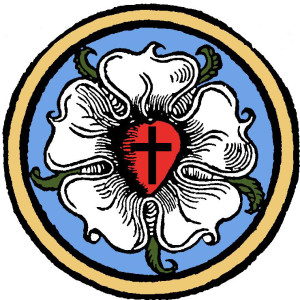
The Old Testament lesson is from Jeremiah 31:31-34. God promises through Jeremiah that He will make a New Covenant. The Old Covenant was with the houses of Israel and Judah when God rescued His people from slavery in Egypt. God had been like a “husband” to them, but they had been like an unfaithful wife, again and again, following false gods and breaking the covenant with Him, in which they were to have no other gods. In the New Covenant, God would put His will within them, on their hearts, and the Lord would be their one great teacher, for them all, and forgive all their sins and remember them no more. (See this week’s Bible study for more on this.)
The psalm is Psalm 119:9-16. How can a “young man” follow the Lord faithfully? He will listen to God’s Word and store it up in his heart. He will “meditate” on the Word and “declare it with his lips.” He will “fix his eyes on the Lord’s ways” and ask the Lord to “teach” him. He “will not forget God’s Word.” (This is the opposite of what God’s Old Testament people so often did, in rebellion against God’s Word and will and following false gods and false words and ways.)
In the Gospel lesson, Mark10:32-45, Jesus was heading to Jerusalem to suffer and die in payment for the sins of His people and of the whole world. He tells his disciples what will happen, but they can only think of themselves and what they want, instead of helping and serving Him. James and John were the most callous about this, wanting the best spots next to Jesus in glory. The other disciples were indignant and probably jealous because they didn’t try the same thing first. Jesus had to teach them again about “greatness” through serving others and the Lord. Jesus Himself was in the process of ultimate service for them and for all by giving His life as “a ransom” for them and for the world. He was paying the price big enough to set them free from slavery to sin and Satan and death.
In the Epistle lesson, Hebrews 5:1-10, Jesus is described as the greatest “High Priest,” “appointed” in the order of a mysterious Old Testament priest, Melchizedek. Ordinary high priests had to be concerned about their own sins, as well as dealing with the sins of others through various animal sacrifices, etc. Jesus offered up prayers and supplications and finally His own life for the sake of others, and became “the Source of eternal salvation for all who would obey Him” by faith and trust in Him. (See more about all this in Hebrews 7-10 and in the Bible study.)
More Episodes
 2023-05-31
2023-05-31
 19
19
 2023-05-22
2023-05-22
 12
12
 2023-05-22
2023-05-22
 13
13
 2023-05-22
2023-05-22
 6
6
 2023-05-16
2023-05-16
 11
11
 2023-05-16
2023-05-16
 9
9
 2023-05-16
2023-05-16
 5
5
 2023-05-08
2023-05-08
 13
13
 2023-05-08
2023-05-08
 15
15
 2023-05-07
2023-05-07
 6
6
 2023-05-02
2023-05-02
 12
12
 2023-05-02
2023-05-02
 17
17
 2023-05-01
2023-05-01
 8
8
 2023-04-24
2023-04-24
 13
13
 2023-04-24
2023-04-24
 17
17
 2023-04-24
2023-04-24
 5
5
 2023-04-17
2023-04-17
 7
7
 2023-04-17
2023-04-17
 13
13
 2023-04-17
2023-04-17
 4
4
Create your
podcast in
minutes
- Full-featured podcast site
- Unlimited storage and bandwidth
- Comprehensive podcast stats
- Distribute to Apple Podcasts, Spotify, and more
- Make money with your podcast
It is Free
- Privacy Policy
- Cookie Policy
- Terms of Use
- Consent Preferences
- Copyright © 2015-2024 Podbean.com






